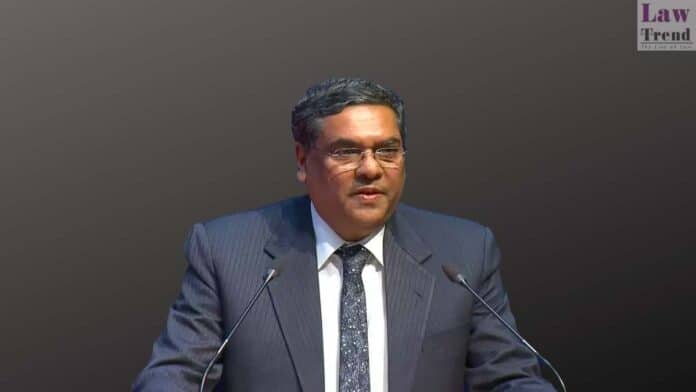Chief Justice of India, Sanjiv Khanna, emphasized the importance of each government branch honouring its constitutional roles, highlighting the need for balance and collaboration during a speech on the 75th Constitution Day. Addressing an audience that included Prime Minister Narendra Modi and Union Law Minister at the event organized by the Supreme Court Bar Association, the Chief Justice underscored the interdependent yet distinct roles of different branches of the government.
“Each branch is not a satellite in an independent orbit but rather a related actor that works in a degree of separateness with interdependence, autonomy, and reciprocity,” he said. Chief Justice Khanna’s remarks pointed to a vision of governance where judicial independence acts not as a barrier but as a conduit facilitating robust governance and the protection of fundamental rights.
During his speech, the Chief Justice also addressed some of the pressing challenges facing the judiciary including the backlog of cases, the high cost of litigation, and difficulties in accessing justice. He revealed staggering figures of pending cases across various levels of the judiciary, with about 4.54 crore cases pending in district courts and over 61 lakh in High Courts.
“These numbers represent not only a challenge but also the deep trust citizens place in our courts as the ultimate arbiters of justice,” Chief Justice Khanna noted. He also touched upon the judicial system’s efficiency, reporting improvements in the Case Clearance Rate (CCR), which has seen a significant rise in district courts from 98.29% in 2022 to 101.74% in 2024.
Chief Justice Khanna highlighted the judiciary’s role in managing the prison population effectively, pointing out that in 2024, courts had released more prisoners than the number of new admissions, demonstrating an efficient handling of cases despite a limited number of judges. He also discussed the need for decriminalizing certain laws to reduce the influx of undertrial prisoners into jails.
Addressing potential criticisms of the judiciary’s unelected status, he argued for the necessity of an unbiased judiciary, insulated from electoral pressures and public opinion, to maintain fair and impartial administration of justice.
“Our decisions are made without affection or ill-will, free from external pressures and guided solely by the Constitution and the law,” he concluded, painting a picture of a judiciary steadfast in its duty to uphold the foundational principles of governance while remaining open to constructive criticism and improvement.




